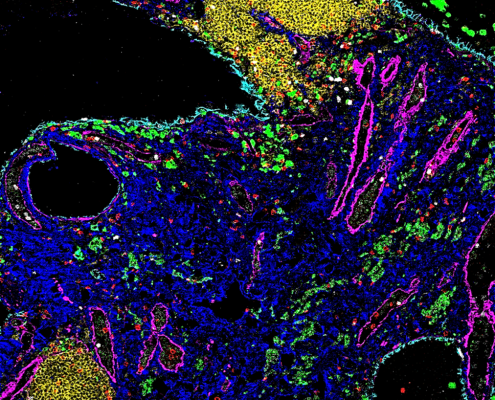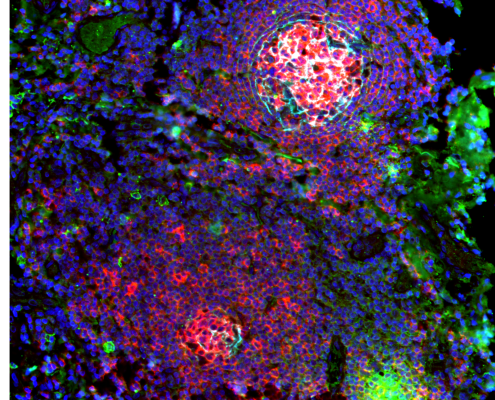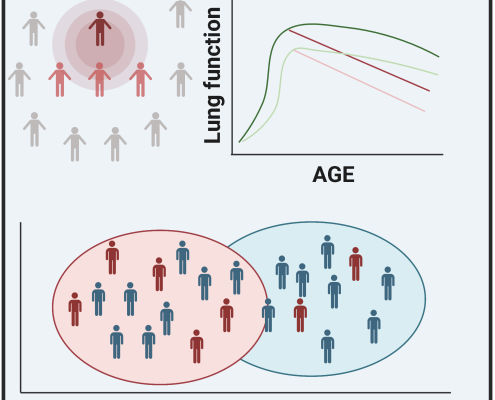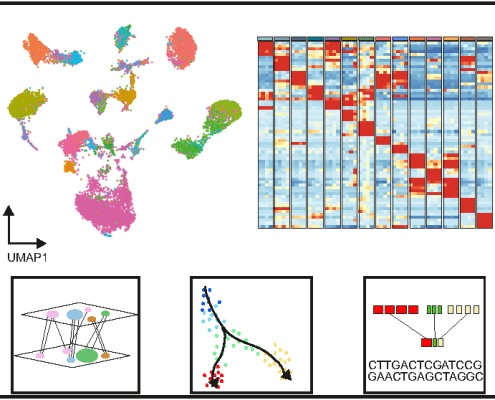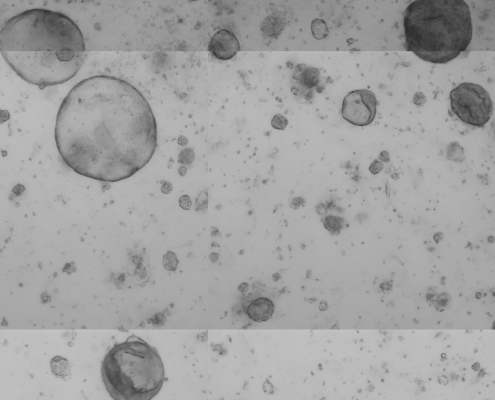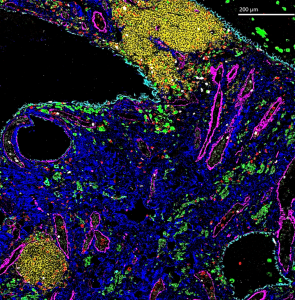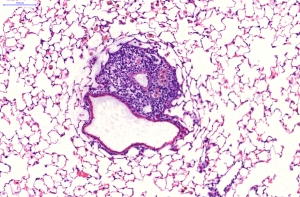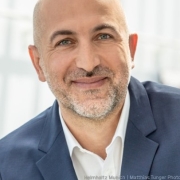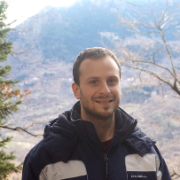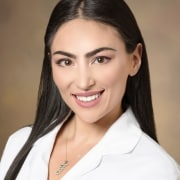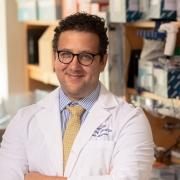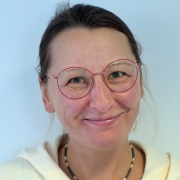Inflammation has long been considered as the main hallmark of COPD pathogenesis. However, with the tools and techniques available today, we can now leverage our understanding of the lung immune microenvironment to dissect out immune cell interactions and consequences to lung injury and repair, and to ultimately identify novel immune therapeutic targets. Our network aims at bringing together COPD immunologists, to foster further collaborative efforts to embrace this vision. ... read more
We have recently identified the importance of epigenetic regulation of myeloid cells in driving COPD pathogenesis (Gunes Gunsel et al., 2022) and furthered our understanding of the contribution of adaptive immune cells to COPD pathogenesis by highlighting the role of B and T cells and lymphotoxin signalling in the onset and progression of emphysema (Conlon et al., 2020). We are implementing the combined use of omics techniques, such as single cell RNAsequencing, spatial transcriptomics, (Polverino et al., 2022; Yang et al., 2022), and radiomics (Sullivan et al., 2019), to understand how the integration of omics can lead to a better characterization of COPD phenotypes and endotypes. By working together, we hope we can pave the way to disease-modifying therapies that target only deleterious immune cell subsets or their harmful products in a selected subset of COPD with off-targeted immune responses.
Conlon, T.M., John-Schuster, G., Heide, D., Pfister, D., Lehmann, M., Hu, Y., Ertuz, Z., Lopez, M.A., Ansari, M., Strunz, M., et al. (2020). Inhibition of LTbetaR signalling activates WNT-induced regeneration in lung. Nature 588, 151-156. 10.1038/s41586-020-2882-8.
Gunes Gunsel, G., Conlon, T.M., Jeridi, A., Kim, R., Ertuz, Z., Lang, N.J., Ansari, M., Novikova, M., Jiang, D., Strunz, M., et al. (2022). The arginine methyltransferase PRMT7 promotes extravasation of monocytes resulting in tissue injury in COPD. Nature communications 13, 1303. 10.1038/s41467-022-28809-4.
Polverino, F., Mirra, D., Yang, C.X., Esposito, R., Spaziano, G., Rojas-Quintero, J., Sgambato, M., Piegari, E., Cozzolino, A., Cione, E., et al. (2022). Similar programmed death ligand 1 (PD-L1) expression profile in patients with mild COPD and lung cancer. Sci Rep 12, 22402. 10.1038/s41598-022-26650-9.
Sullivan, J.L., Bagevalu, B., Glass, C., Sholl, L., Kraft, M., Martinez, F.D., Bastarrika, G., de-Torres, J.P., San Jose Estepar, R., Guerra, S., and Polverino, F. (2019). B Cell Adaptive Immune Profile in Emphysema-Predominant COPD. Am J Respir Crit Care Med 200, 1434-1439. 10.1164/rccm.201903-0632LE.
Yang, C.X., Tomchaney, M., Landecho, M.F., Zamacona, B.R., Marin Oto, M., Zulueta, J., Malo, J., Knoper, S., Contoli, M., Papi, A., et al. (2022). Lung Spatial Profiling Reveals a T Cell Signature in COPD Patients with Fatal SARS-CoV-2 Infection. Cells 11. 10.3390/cells11121864.


